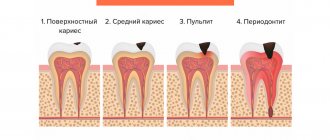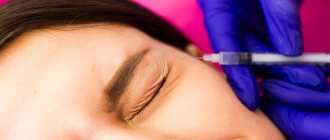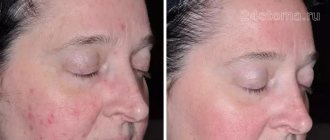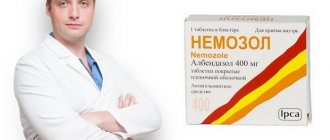June 25, 2020
We often hear the term “vitaminosis” in colloquial speech, and this term is used to explain any state of “ill health.” However, true vitamin deficiency is an extreme degree of disease caused by a lack of one or more groups of vitamins
We often hear the term “vitaminosis” in colloquial speech, and this term is used to explain any state of “ill health.” However, true vitamin deficiency is an extreme degree of disease caused by a lack of one or more groups of vitamins.
Acute vitamin deficiency seriously affects metabolic processes in the body and has a number of specific clinical manifestations. This condition requires medical correction and treatment, as it can lead to quite severe disturbances in the functioning of internal organs. True vitamin deficiency is very rare in medical practice.
Signs of vitamin deficiency in children and adults
Catalysts that cause vitamin deficiency of vitamins A, B, C and others are divided into external (food, environmental, etc.) and internal (caused by dysfunction of internal organs).
Among the nutritional prerequisites, the following reasons for the development of vitamin deficiency are distinguished:
- Unbalanced diet.
- Early or incorrect introduction of complementary foods to infants.
- Fasting, strict diets.
- Consumption of poor quality products.
- Irrational heat treatment and improper storage of food.
- The use of medications that block the normal absorption of vitamins by the body.
In addition to food reasons for the appearance of severe vitamin deficiency, there are such external prerequisites for its development as:
- Extreme living conditions (long stay in cold/hot latitudes, high in the mountains).
- Severe or prolonged stressful conditions.
- Alcohol abuse, nicotine and drug addiction.
- Living in unfavorable environmental conditions.
- Excessive physical activity.
It is also necessary to mention internal prerequisites caused by diseases and disorders of the internal organs. These include:
- Deviations in the functioning of the digestive tract.
- Insufficient level of development of the gastrointestinal tract (in children).
- Disorders of the endocrine system.
- Weak defenses of the body.
- Malfunctions in the vitamin absorption system. They manifest themselves in disruption of transport and enzymatic functions, permeability of cell walls, as well as deviations in the metabolism of vitamins.
- The presence of parasites in the body.
- Dysbacteriosis.
- Liver and kidney diseases.
B vitamins
B vitamins are a whole group of substances.
- Vitamins B1-B3 are necessary to maintain a healthy nervous system.
- Vitamin B6 - for the metabolism of proteins and carbohydrates, as well as for the formation of hemoglobin - a protein that is part of red blood cells.
- Vitamin B9 (or folic acid) - for red blood cells, as well as to reduce the risk of developing defects in the development of the nervous system in the fetus during pregnancy.
- Vitamin B12 - for red blood cells and folic acid metabolism.
The most common deficiencies (from this group) are vitamin B2, folic acid and vitamin B12. Where folic acid is found:
in broccoli, Brussels sprouts, spinach.
Vitamin B12 is found
only in products of animal origin: meat, salmon, milk, cheese, eggs.
Why is folic acid needed?
Directly or indirectly, folic acid and its compounds are involved in all types of metabolism, the synthesis of neurotransmitters, components of cell membranes, and control cell division.
It is precisely this that ensures the normal development of the neural tube in the fetus, therefore the provision of this vitamin is especially important for future parents, since it directly affects the health of the child. A lack of folic acid in a pregnant woman can lead to neural tube defects in the fetus, and a lack of vitamin B12 can lead to anemia.
The following symptoms may indicate a deficiency of both folic acid and vitamin B12
- constant fatigue
- decreased memory and attention,
- irritability,
- lack of appetite.
Since these symptoms are not specific, it is impossible to do without a blood test and consultation with a specialist. It is important to note that to prevent folate deficiency and prevent nervous defects in the fetus when planning pregnancy, it is recommended to start taking folic acid 3 months before the expected conception. People who are on plant-based diets (vegetarians, vegans, etc.) need to additionally enrich their diet with vitamin B12 or use food products fortified with this vitamin. A deficiency of vitamin B12 and folic acid may occur in patients taking the drug metformin.
Vitamin deficiency: symptoms
Depending on which vitamin the body lacks, the signs of vitamin deficiency can vary greatly. Below is a list of symptoms that occur with a lack of vitamins A, B, C, D, E, PP, K.
- Vitamin deficiency on the skin manifests itself in the form of such conditions as: dryness, itching, burning, hyperpigmentation, increased skin pattern, decreased elasticity, the appearance of spider veins, rashes in the form of acne and pimples, the formation of small weeping erosions, dry scales and microcracks, the appearance stretch marks and wrinkles. In some cases, the top layer of skin may peel off.
- From the digestive system, there is a decrease in appetite, diarrhea or constipation, weight loss, and vomiting.
- On the part of the oral cavity, bleeding gums, thinning of tooth enamel, increased sensitivity of teeth to hot, cold, sweet, and sour foods, slowed tooth growth in children, and tooth loss in adults may occur.
- In hair and nails, fragility, separation, yellowing and deformation of the nail plates, and hair loss are observed.
- Muscle cramps can be diagnosed.
- From the circulatory system: the appearance of bruises, bleeding gums, hemorrhage into blood vessels.
- From the organs of vision: “night blindness”, decreased visual acuity, feeling of sand under the eyelids.
- From the musculoskeletal system: fragility of bones, pain in joints and bones, disorders of the development of the musculoskeletal system in children.
- General condition of the body: chronic fatigue syndrome, weakness, drowsiness, irritability, apathy, depression, dizziness, sleep disturbances, headaches, mood swings.
The ways in which vitamin deficiency manifests itself may vary. Therefore, to establish an accurate diagnosis, you need to consult a doctor.
How much vitamin A should you consume per day?
The body requires from 600 to 2800 mcg of vitamin A per day, depending on the age, weight and condition of the person. The permissible daily portion of this substance is 3000 mcg per day.
According to nutritionists, men should consume 900 mcg of vitamin A per day, women 800 mcg, children from 4 to 8 years old - 400 mcg, babies under three years old - 300 mcg, infants from 6 to 12 months 500 mcg, and newborns - 400 mcg.
During pregnancy, the daily requirement for the vitamin increases to 2800 mcg. During breastfeeding, mothers also need to provide 2800 mcg of retinol, since the newborn receives all biologically active compounds from breast milk for up to six months.
Vitamin deficiency in children
Children suffer from a lack or absence of vitamins in the body more often than adults. This is due to their fragile immune system and insufficient development of the gastrointestinal tract.
The state of vitamin deficiency can lead to a number of serious diseases, such as rickets and ichthyosis. Therefore, when the first signs of vitamin deficiency appear (with vitamin deficiency in the hair, vitamin deficiency on the fingers, lips or feet), urgently take the child for a consultation with a pediatrician.
How does a lack of vitamins manifest itself?
In children and adults, vitamin deficiency can manifest itself in different ways:
- children suffer from ARVI and other viral diseases, eat poorly and are capricious;
- children and adolescents are inattentive at school, irritable and cannot concentrate;
- adults get tired and can’t cope at work, notice negative changes in appearance;
- In older people, chronic diseases worsen or new diseases arise.
Vitamin deficiency often appears on the hands, face and skin. This could be a red rash, herpes or cracks in the corners of the lips, dry or irritated skin. The more obvious the signs, the more important it is to visit a doctor as quickly as possible.
Vitamin deficiency in women during pregnancy
During pregnancy, the mother's body places additional stress. To make it easier to endure pregnancy, as well as to provide the baby with the necessary vitamins, the expectant mother should carefully monitor her diet. Only a doctor can correct it and supplement it with the necessary vitamins. Doing this on your own is prohibited, since some vitamins cannot be taken during a certain trimester of pregnancy.
How to prevent a lack of vitamins?
You need to achieve harmony with yourself. In order for the balance of vitamins and microelements in the body to be ideal, it is important:
- Eat right - give up unhealthy foods in favor of healthy foods, eat little and often, and enjoy the process.
- Drink clean water - no herbal teas can replace clean still water. Can't drink 8 glasses a day? Drink as much as your body requires.
- Move a lot - physical inactivity and a sedentary lifestyle will not bring any good to even a healthy person. Regular walks or fitness and yoga classes will help support your immune system.
- Worry less. All diseases are caused by nerves, remember? An excellent mood, a positive attitude towards life and healthy sleep are the best prevention of vitamin deficiency and diseases.
- Take vitamin complexes. You no longer need to buy a sea of packages; in the complexes, all vitamins are selected so as to accurately “hit the target” - eliminate
Types of vitamin deficiency in the body
The most common types of the disease:
- Vitamin A deficiency. The main indicators of a lack of this vitamin are blurred vision, anemia and symptoms of vitamin deficiency on the skin (dryness and flaking). Treatment requires dietary adjustments: inclusion of fish oil, fatty sour cream, vegetable oils, carrots, sea buckthorn, and spinach in the diet.
- Vitamin D deficiency. This vitamin is generated by exposure to sunlight. Its deficiency in the body manifests itself through increased sweating, constipation, pathology of the musculoskeletal system, irritability, and problems with normal sleep. Nutrition for vitamin D deficiency should be enriched with meat, fish, fish oil, liver, and chicken eggs.
- Lack of vitamin E. Characterized by nervous disorders, fragility of blood vessels, impaired reproductive function and dry skin. The diet should include vegetable oils, nuts, seeds, meat, eggs, and milk.
- Absence or deficiency of vitamin C. Manifests itself in the form of bleeding gums, swelling of the lower extremities, anemia, white coating on the tongue, weakness, dizziness. It is necessary to eat rose hips or a decoction of them, citrus fruits, sorrel, bell pepper, and rowan.
- Lack of vitamin K. Its symptom is bleeding and hemorrhage. You should include beef liver, spinach, and Brussels sprouts in your diet.
- Vitamin deficiency of B vitamins. A deficiency of one of the vitamins of this family - B1, B6, B12, B9 - leads to headaches, memory disorders, convulsions, insomnia, stomatitis, coordination problems, depression, tachycardia, and pathology of the hematopoietic system. The emphasis in the diet should be on eggs, liver, legumes, bananas, cheese, fresh vegetables, bread.
- Vitamin P deficiency. The main symptom is hemorrhages in the skin and mucous membranes. You should add rose hips, green tea, and citrus fruits to your diet.
Symptoms of pathology
Symptoms of vitamin deficiency depend on several factors. The main group becomes a vitamin whose deficiency is observed in the human body. The clinical picture of the pathology is significantly influenced by the form of hypovitaminosis (mild, moderate, severe) and the patient’s age.
Common signs of all types of vitamin deficiencies are:
- decreased appetite;
- increased fatigue;
- drowsiness;
- irritability;
- attacks of nausea.
The first signs of pathology appear with a significant lack of vitamin in the diet of a child or adult.
| Deficiency vitamin | Symptoms |
| A | Visual impairment – twilight blindness, distorted color perception. The keratinization of the skin increases, the hair becomes thin and brittle |
| B1 (beriberi disease) | The skin becomes thinner and dry. The sensitivity of the legs is impaired, and fluctuations in body temperature are noted. The calf muscles often cramp. When reporting the form, shortness of breath, tachycardia and severe edema appear |
| B3 (pellagra) | The skin darkens and flakes intensely. The hands become covered with red, swollen spots, which are similar to manifestations of an acute inflammatory process. |
| B6 (hyporiboflavinosis) | Conjunctivitis develops. The red border of the lips dries out and peels, and cracks appear in the corners of the mouth. The tongue becomes crimson and shiny. There are teeth marks on his sides |
| B12 | Signs of anemia and atrophic gastritis develop. Foci of burning and tingling form on the tongue. Muscle tone weakens, the patient’s gait changes |
| C (scurvy) | The gums become swollen and bleed. The skin becomes thinner and becomes dry and flaky. Hemarthrosis of the knee joints develops, teeth become loose and fall out |
Do you have symptoms of vitamin deficiency?
Only a doctor can accurately diagnose the disease. Don't delay your consultation - call
Vitamin deficiency: treatment
If the deficiency is minor, your doctor may prescribe medications orally. If there is a pronounced deficiency of a particular vitamin, intramuscular injections will be required. Physiotherapeutic procedures may also be required (for vitamin D deficiency).
For vitamin deficiency, not only medication, but also folk treatment helps: a decoction of rose hips, rowan, and viburnum. In addition, you can prepare a vitamin mixture from ground nuts, dried apricots, prunes, lemon, raisins and honey.
Diet for vitamin A deficiency
The highest percentage of vitamin A is found in animal foods, for example, cod liver, fatty fish, seafood, liver of farm animals and birds, quail and chicken egg yolk.
From these products you can prepare delicious and nutritious salads, which will not only help prevent vitamin deficiency, but also improve your mood and give gastronomic pleasure.
Vitamin A is also found in bright green and orange fruits and vegetables - carrots, pumpkins, peaches, apricots, spinach, avocados and others.
It is important to remember that for better absorption of vitamin A, tocopherol, choline and fats are needed in small doses. Thanks to these substances, gastric juice is produced, which is necessary for the synthesis of the vitamin. Simply put, in order for vitamin A to be absorbed, you should make vegetable salads with butter or sour cream. This way, all the valuable substances in vegetables and fruits will benefit your body.
Prevention of vitamin deficiency
To protect yourself from seasonal vitamin deficiency, a balanced diet is recommended. Avoid overly strict diets and fasting, as only a rational approach to diet planning will help protect against vitamin deficiency in the body. Eat as many fruits, berries and vegetables as possible, do not forget about vegetable oils and foods of animal origin.
In winter and spring, when vitamins are scarce, it is recommended to sprout wheat, oats, green buckwheat, and lentils at home: green sprouts help replenish the lack of vitamins and prevent vitamin deficiency.
Causes of vitamin A deficiency
Vitamin A deficiency is often a direct consequence of a lack of meat, fish and fresh vegetables and fruits in the daily diet, which is most often observed in the winter and spring seasons.
The main causes of A-vitaminosis are:
- unbalanced diet;
- metabolic disease;
- period of pregnancy and lactation;
- problems with the perception or absorption of vitamins;
- taking medications that may complicate the absorption of retinol;
- consumption of products of synthetic origin as the main ones;
- the presence of vitamin complex inhibitors in the body;
- diseases of the gastrointestinal tract.
Clinical researches
A clinical study conducted jointly with the Union of Pediatricians of Russia proves the high efficiency, safety and tolerability of products for daily skin care of children with mild and moderate forms of atopic dermatitis and during remission, accompanied by a decrease in the quality of life of patients. As a result of therapy, the following effects of the La-Cri cleansing gel were noted:
- Gentle skin cleansing;
- Relieving redness and itching;
- Skin restoration;
- Skin nutrition.
Sources:
- B.A. Shamov, I.G. Safiullina, A.B. Beshimova, T.B. Shamov, Differential diagnosis of atopic dermatitis, Journal of Practical Medicine, 2011
- Fokina R.A., Atopic dermatitis: stages of development of classification forms, Siberian Medical Journal, 2007
- A.N. Pampura, A.A. Chuslyaeva, Modern approaches to the treatment of atopic dermatitis in children
Photos of vitamin deficiency
You can see photos of vitamin deficiency on our website.
Photo album on the disease









